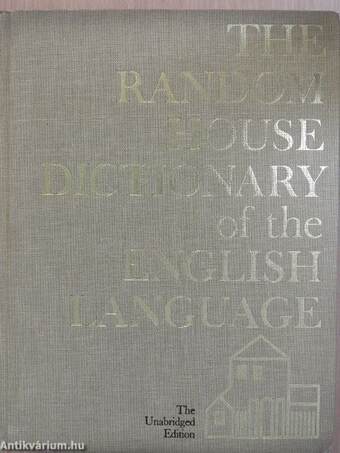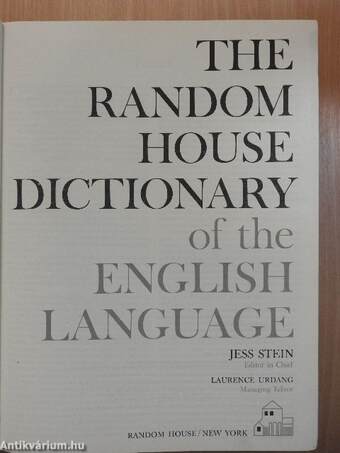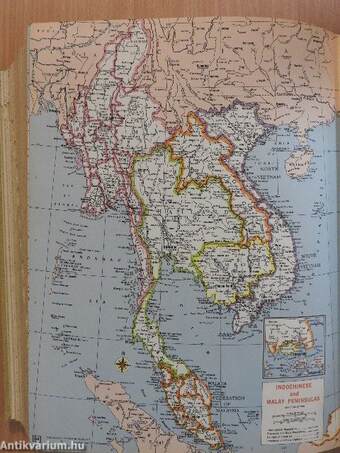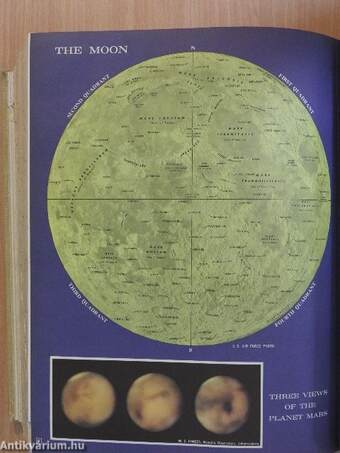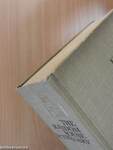Előszó
Preface IANGuage is an indispensable instrument of human society. j It is the means by which individuals understand each other and are enabled to function together as a community. Indeed, it is unlikely that any human organization could either be formed or long maintained without language. Certainly, in the absence of communication, the complex structure of modern society would be utterly impossible. The effectiveness of human society, therefore, is largely dependent upon the clarity, accuracy, and efficiency with which language is used or understood. As man's voice reaches now with ease-by radio, by cable, by television-across continents and oceans, the importance of what he says becomes paramount. But language, unlike such phenomena as breathing and eating, is not biologically inherent; it is not instinctively present. The infant must learn the power and uses of language; he must gain it by conscious effort and by discipline. Sound by sound, word by word, the child acquires this wondrous vehicle for making his wants known, for expressing his feelings and thoughts, for understanding what others wish him to know or do. And, constantly expanding and improving his command of language as he becomes an adult, he develops the capacity for thought and communication on the most abstract and sophisticated planes. Language, as a social convention, thus becomes one of the prime characteristics of man rising above a simple animal existence. In man's language is to be found the true mirror of man himself. His lexicon is an index to his ideas and passions, his inventions and achievements, his history and hopes. As man extends the horizon of his knowledge, he extends simultaneously the range of his language-devising new words, new meanings, new symbols. Thus, the remarkable explosion of knowledge in the middle of the twentieth century-the invention of computers and other cybernetic machines, the great new areas of medical discovery, the total revision and expansion of the physical sciences, the exploration of outer space by manned flight and by transmitted signal, and innumerable other developments- has been extensively reflected in our language. Large areas of vocabulary that did not exist until recently-in nuclear physics, in biochemistry, in mathematics, in psychology and sociology, and in dozens of other fields-now press insistently upon the student, the businessman, and the general reader. In every aspect of daily life the necessity for ready access to clear and authoritative information is steadily increasing. If modern man is to function well in his society, one of his necessities, surely, is to keep pace with the dynamic growth of his language. To meet such a need The Random House Dictionary of the English Language has been prepared. It is an entirely new dictionary, written in midcentury for twentiethcentury users. Because it is fully up to date and thoroughly reliable, the RHD will provide the user with all the information he is likely to need about meaning, spelling, pronunciation, usage, etymology, and other language matters. As a generalpurpose reference book, the RHD meets the requirements of students and laymen and satisfies the quality standards of leading scholars and authorities. The broad sweep of the English language is fully covered here, including foreign words and phrases, biographical terms, geographical terms, abbreviations, titles of major literary works, and many other types of information frequently sought. In the planning and preparation of this dictionary, we have endeavored to preserve all that is worthy in the great lexicographic traditions of Samuel Johnson, Noah Webster, James A. H. Murray, William Craigie, William Dwight Whitney, and others. We have resisted the temptation to introduce novelty in the guise of innovation, but we have carefully employed those new ideas and methods that represent genuine advances in modern lexicography. This viewpoint has governed us during the twenty years since publication of The American College Dictionary, which has been widely praised for its balanced application of linguistics, its lucid use of scholarship, and its unflagging awareness of the importance of communicating with the reader. The ACD established a new standard for desk dictionaries, and it is our hope that the RHD will set a new high standard for larger dictionaries. Throughout our work we have had the advantage of working closely with hundreds upon hundreds of scholars and experts who helped us frame our basic principles, guided us in the myriad decisions that had to be made, and worked directly with us on the manuscript itself. At one stage of our progress, we were also able to confirm the acceptability of our policies by a long questionnaire submitted under unrevealed origin to more than ten thousand teachers, librarians, and writers. In addition, many hundreds of other authorities were consulted on specific questions, and all gave most generously and enthusiastically of their special knowledge and judgment. The comprehensive range represented by our consultants was matched by their wide distribution throughout the United States, England, and other parts around the world. In the preparation of the RHD, our permanent lexicographic staff made full use of its departmental resources-our large file of citations from newspapers, magazines, and books; glossaries and indexes; special dictionaries and lists; textbooks and concordances; reference books and learned studies, and so on. This was supplemented by extensive use of many major public and university libraries, plus the facilities of many governments, private institutions, and professional organizations. Our central concern throughout the editing of the RHD has been communication with the user. In the writing of definitions, for example, we have tried to avoid ingeniously concise wordings that are meaningful only to the writer. We have been guided by the premise that a dictionary editor must not only record; he must also teach. We have tried to express ourselves clearly and simply, using normal English and normal punctuation and capitalization. We have often added illustrative examples after definitions in order to give the reader as much help in understanding the meaning and use of the word as reasonably
Vissza 

